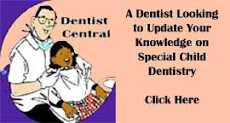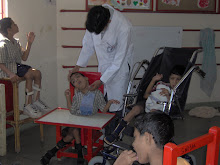
What does disability mean to us? To most who do not come into contact with it, it is just a term; a term that may be used with modifications, a term that may or may not be acceptable, but a term none the less. After all what are the chances that a dentist would come across, much less treat such an individual.
But times have changed. Individuals, who a century ago would have been branded as ‘idiots’ or ‘morons’, are today diagnosed with specific, sometimes treatable, disorders. Babies with defects in the heart, who fifty years ago would have been given up for dead, are today being successfully operated upon. Malignancies such as leukemia, which a few decades ago meant certain death for the affected child, today have remission rates over 90%. The maternal transmission of HIV, which a few years ago meant certain transmission of the infection to the infant, is today being successfully prevented through effective maternal prophylactic regimen.
According to the 2001 census there were 21.9 million individuals with disability in India. This statistic however only includes those with visual, speech, hearing, locomotor and mental disability, and does not include the large number of individuals with various medically compromised conditions. It is estimated that in countries like the UK, where the data on individuals with medically compromised conditions is added to the data, the prevalence of disability may be as high as 1 in every 4 individuals.
Special Care Dentistry in its broadest sense deals with the dental management of an individual with special health care needs. It requires an understanding of the underlying conditions and knowledge of the precautions that need to be taken while delivering dental care to such conditions. It may be defined as
The improvement of oral health of individuals and groups in society who have a physical, sensory , intellectual, mental, medical, emotional or social impairment or disability, or more often a combination of these factors(Fiske 2007)
Special care dentistry includes the screening, preventive and treatment programs tailored to meet the specific needs of groups of individuals.
The management of an individual with Special Health Care Needs is professionally demanding. They often require more time, better equipment and greater skill on the part of the dentist. The basis of special care dentistry is the broad based philosophy of provision of care.
Special Care Dentistry in its broadest sense deals with the dental management of an individual with special health care needs. It requires an understanding of the underlying conditions and knowledge of the precautions that need to be taken while delivering dental care to such conditions. It may be defined as
The improvement of oral health of individuals and groups in society who have a physical, sensory , intellectual, mental, medical, emotional or social impairment or disability, or more often a combination of these factors(Fiske 2007)
Special care dentistry includes the screening, preventive and treatment programs tailored to meet the specific needs of groups of individuals.
The management of an individual with Special Health Care Needs is professionally demanding. They often require more time, better equipment and greater skill on the part of the dentist. The basis of special care dentistry is the broad based philosophy of provision of care.
Its guiding principles are that:
· All individuals have a right to equal standards of health and care
· All individuals have a right to autonomy, as far as possible, in relation to decisions made about them.
· Good oral heath has benefits for health, dignity and self esteem, social integration and general nutrition and the impact of poor oral health can be profound. (Fiske 2007)








1 comment:
A professional treatment should be done to children when a dental problem rises. This gives them knowledge about hygiene oral care.
Post a Comment